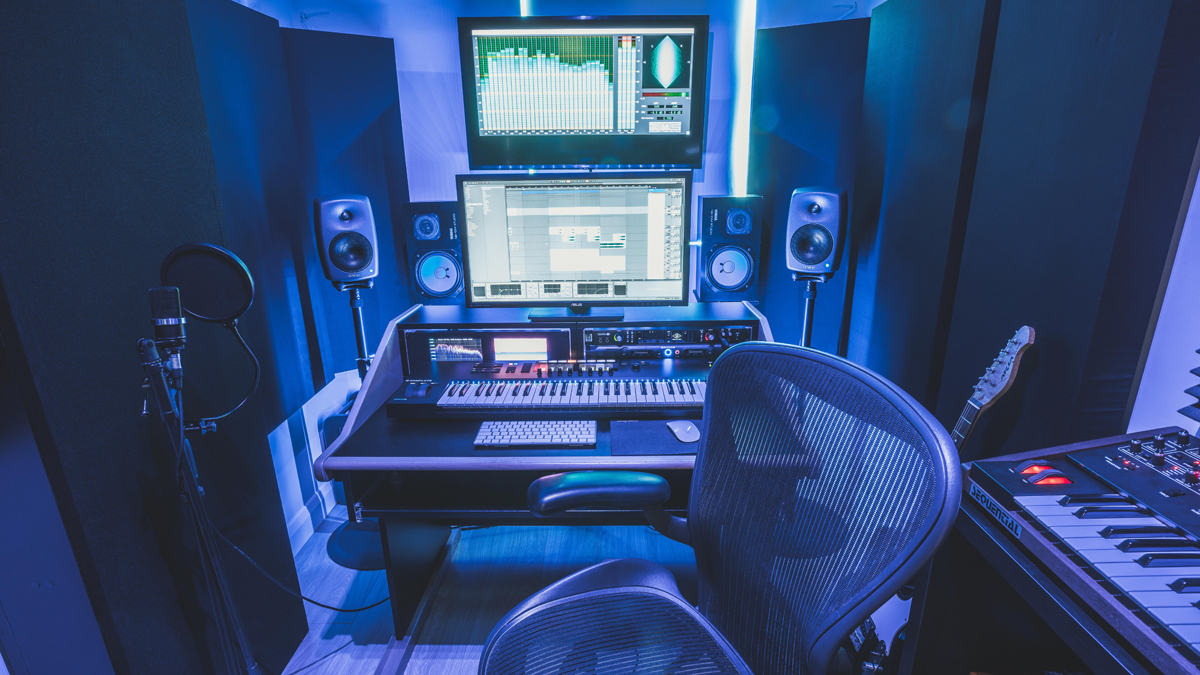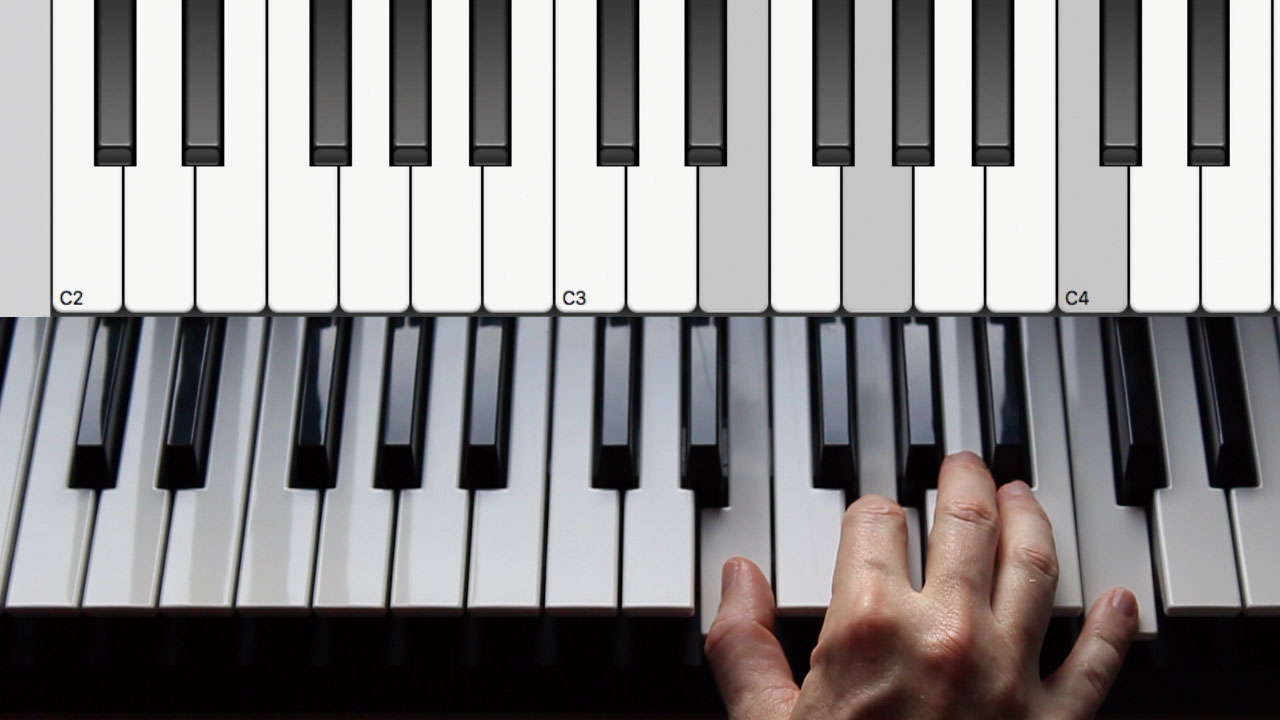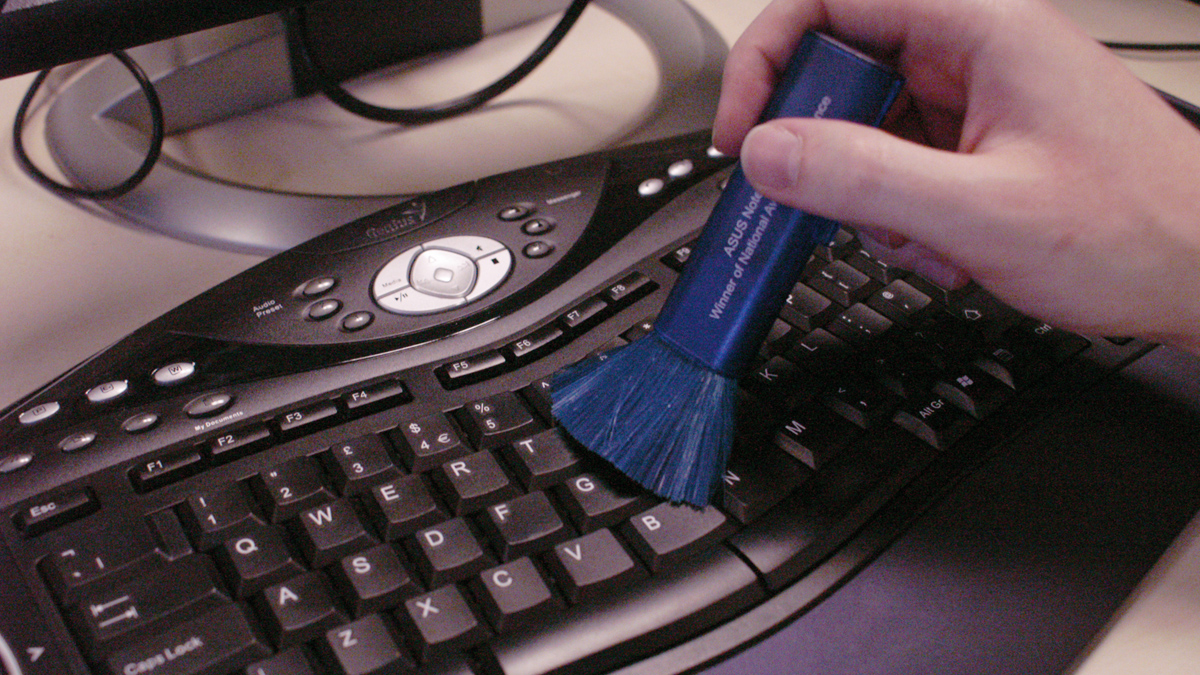9 ways to be a productive electronic music producer in self-isolation
Stave off cabin fever with our guide to making the most of your time in solitary confinement

Want all the hottest music and gear news, reviews, deals, features and more, direct to your inbox? Sign up here.
You are now subscribed
Your newsletter sign-up was successful
As an electronic music producer you’re naturally unfazed by the prospect of spending long periods secluded from humanity, so mental preparation is unnecessary.
However, achieving maximum productivity in this most surreal of scenarios isn’t without challenge, so here are nine ways you can fully exploit this bonus studio time and turn self-isolation into your best incarceration ever!
1. Create some truly uninspired music
When asked what inspires them, many professional producers will answer with something along the lines of “inspiration is a myth, bucko!” Well, now here’s your opportunity to prove them 100% correct by making some music that’s free from even the most basic sources of inspiration.
Thankfully removed from physical contact with other human beings and nature, you’re free to explore the utter void that is your inner world, and make the most generic music yet heard by a human being.
Be careful, though: art, literature and human contact are all available via the internet, so be sure to turn off your router before any unwanted thoughts or emotions contaminate your mind.
2. Collaborate with weirdos online
If you’re not prepared to sever your remaining connection with the outside world, why not use the internet to find someone online to collaborate with? Online collaboration is superior to its IRL counterpart in that you don’t have to look at or listen to the other party’s face and voice, and are in fact free to ignore their creative input altogether.
The only downside is that, just like in real life, you have to watch out for less than scrupulous individuals who are only after your cash money. The golden rule here is to not to pay for collaborations, instead searching out potential partners who sincerely share your goal of bringing funky ambient acid to the masses. That way you can both be broke together!
Want all the hottest music and gear news, reviews, deals, features and more, direct to your inbox? Sign up here.

3. Finally learn something about music theory
Since opening your first DAW you’ve vowed that at an undetermined point in the future you’ll knuckle down and learn something about the extremely boring world of music theory.
Merely thinking about inversions, substitutions and augmented 9ths is enough to engender mild soporific effects in even the most motivated and enthusiastic of producers, and picking up a theory book or opening a related video will surely cast you into a theory-induced coma that could last long enough to see you through self-isolation entirely.
Do bear in mind that if you inadvertently retain any theory knowledge you will have ruined the fun of music making for yourself forever. Be sure to make sure you’re extremely drunk or high before you start, or at least have access to a Men In Black-style ‘neuralyzer’ device to remove any unwelcome information.
4. Synthesize the perfect snare drum
For years now you’ve been using real or sampled snare drums like a stupid caveman, but as you’re no doubt already aware, the only way to make an authentic piece of art is to construct every single element yourself from scratch.
As such, it’s time to engage your gosh darned brain and work out how to replicate the complexities of real world percussion acoustics in a synth. You could spend an eternity deconstructing Rob Swire’s Phase Plant presets or watch the Current Value Producer Masterclass, but here’s the real scoop: to create the ideal punchy snare sound for any occasion, simply use a white noise oscillator and turn down the amplitude envelope’s decay time. You’re welcome, internet!
5. Spend your mountain of accrued Splice credits
If you’ve been using sample subscription service Splice for a while you’ve almost certainly amassed a gigantic collection of unused credits. While Splice credits don’t expire, the human race might, so you might as well cash them in while your utilities are still functional.
Not only is this a financially savvy move, but what better way is there to impede the onset of insanity by auditioning hi-hats for twelve hours straight? By the end of a single day listening to percussive one-shots, sound and time will have ceased to hold any meaning, making the rest of your isolation an exciting journey into the unknown.

6. Clean your equipment
Take a second to gaze around your studio and you may notice that it contains obsolete physical instruments and effects such as Moog Voyagers, Boogs, and of course Volcas. Due to disuse, these remnants of a forgotten past will be covered in a heavy layer of dust, a substance composed almost exclusively of dead human skin and hair.
Unless you’re making gothic dubstep this preponderance of morbid decay isn’t really going to set the right vibe, so whip out your duster and redistribute the mix of insect feces and your friends’ decomposed epidermises into the air where it’s less noticeable, yet all the more breathable.
7. Look back over your old projects
Now is a great time to pause and take stock of your position, so why not try listening to some old projects? This will give you the opportunity to marvel at the lack of progress you’ve made over the years, flinging you into an existential crisis that will handily distract you from the toilet roll riots occurring directly outside your house.
Once you’ve regained your sense of purpose, make sure to salvage anything useful from your old unfinished work, especially if it was made before you began overthinking everything and your creativity totally disappeared.
8. Prepare for a civilisation-free future
Let’s say the unthinkable happens, and human civilisation as we know if ceases to exist. First priority: how will you continue to work on your WIPs?
Assuming your kit hasn’t survived the fall of mankind the first step is to learn how to create computer components from scratch using your bare hands, followed swiftly by the coding of your own operating system and DAW. How long could that take - a weekend maybe?
Once that’s sorted your next move is to find a generator and a supply of fuel, both of which will be in high demand in the post-apocalyptic badlands, so you’ll want to brush up on your combat and dune buggy driving skills.
Assuming your kit hasn’t survived the fall of mankind the first step is to learn how to create computer components from scratch using your bare hands, followed swiftly by the coding of your own operating system and DAW. How long could that take - a weekend maybe?
At this point you’re free to finish off the WIPs, but naturally you’ll still need some objective feedback on your tunes. This is where your weak and dying ex-colleagues and friends come into the equation.
They’re frail enough to easily be assembled into a literal captive audience, and while it's tempting to feed and water your buddies regularly this could be perceived as an act of kindness, prejudicing them in your favour and affecting the objectivity of their feedback.
Instead, provide them with sustenance at irregular, infrequent intervals, keeping them on their toes and you safe in the knowledge you’re getting the least-prejudiced critiques in the wasteland.
9. Make light of the situation with comedy music
If you’re, say, hiding from a terrifying virus and it’s making you sad, why not strip the infectious agent of its power by satirising it? Simply think of a song with a hook that rhymes with the name of your microscopic nemesis, and the rest writes itself! Do remember though, taking comedic advantage of such a situation for personal financial gain makes you a garbage-tier human.

